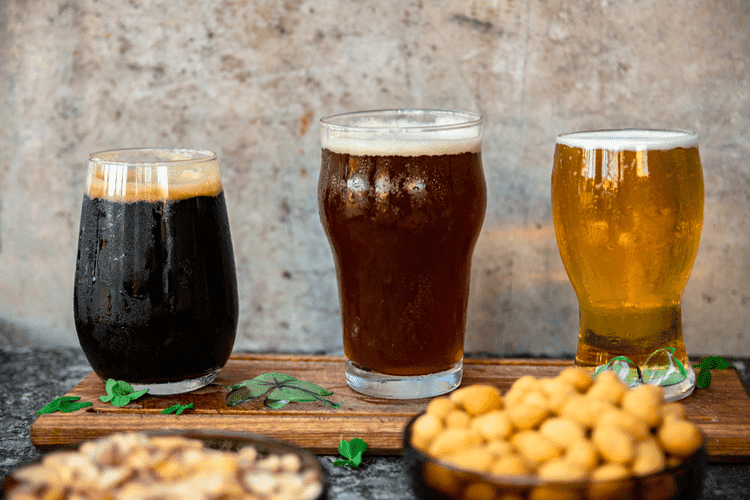Drinking on an empty stomach can get you drunk much faster since food primarily acts as a buffer for your body’s digestion of alcohol. A lack of sleep, or poor quality of sleep, increases your appetite and cravings for junk food rich in refined carbohydrates and decreases your energy expenditure on the following day. Plus, most alcoholic beverages have a lot of energy but little nutritional value, which is where the term ‘empty calories’ comes from. To flush out this water weight, cut the carbs down to 50g the day after drinking. Also use intermittent fasting combined with C8-MCTs to promote additional fat-burning.
By cutting back on binge drinking, you could inadvertently lose weight to achieve a lower body mass index (BMI) without making any other changes to your lifestyle. Moderate alcohol consumption shouldn’t cause any significant weight gain as long as you do everything else right. But if you aren’t able to eat right when drinking, it’ll significantly affect how you accumulate fat. Many who drink alcohol will also retain water the next day, causing your weight to increase.
A study published in 2016 found that decreasing light-to-moderate alcohol consumption did not significantly affect weight loss. Still, the researchers noted that reducing alcohol intake led to less impulsivity, like overeating. Research has found that light-to-moderate alcohol intake does alcohol make you gain weight does not cause weight gain. Still, even if abusive drinkers do get a few rounds on the house, calorically speaking, it doesn't add up to a knockout figure. Habitual excessive alcohol consumption has long been linked to an increased waist-to-hip ratio (a fancy term for a beer belly).
Thus, we need to rely on short-term intervention studies and epidemiologic studies, each of which has clear limitations in showing an effect of alcohol intake on the vulnerability to gain weight. However, the preponderance of the evidence taken as a whole suggests that alcohol may be a risk factor for obesity in some individuals, especially when consumed in large quantities. Another important confounding factor to be considered is physical activity level.
Generally, you must consume fewer calories than you use to lose weight. You do not have to give up alcohol entirely to create a calorie deficit. Instead, changing your drinking habits can help you manage your weight. People who consume excess food and drinks that are high in empty calories have a higher risk of having overweight and obesity than others. Research has found that elevated cortisol levels may increase abdominal weight gain. Cortisol redistributes fat tissue to your abdominal region and increases cravings for high-calorie foods.
Drinking alcohol in moderation may help you control your urges to eat and keep you in the right mind to make better food choices. Instead, you can use water and a slice of lemon or orange as your chaser to help flush out the aftertaste of alcoholic beverages. Alcohol can impair judgment and decision-making skills, potentially leading to poor food choices. Even those who are usually conscious of their diet struggle to resist the urge to eat when intoxicated.
Although there is evidence to suggest that frequent alcohol intake may predispose to weight gain or obesity over the long-term, this effect is not strongly reflected in the recent research. First, it has been found that alcohol intake increases energy expenditure, likely due in part to the fact that it has a high thermogenic effect [53]. It has also been suggested that some of the energy ingested as alcohol is ‘wasted’, due to the activation of the inefficient hepatic microsomal ethanol-oxidizing system (MEOS). The MEOS is induced through chronic alcohol intake, and the level of induction increases with increased intake [54, 67]. Oxidation of alcohol via the MEOS produces less ATP than oxidation via alcohol dehydrogenase, using the energy from alcohol intake primarily to enhance heat production [37, 54].
However, the effects of alcohol surpass even social drinking etiquette. Alcohol lowers inhibitions and can lead to poor decision-making in the heat of the moment — especially when it comes to food choices. When your body is using alcohol as a primary source of energy, the excess glucose and lipids end up, unfortunately for us, as adipose tissue, or fat. This means that they provide your body with calories but contain very little nutrients. Here are eight ways alcohol can impede your weight loss and what you should drink instead.
There are also other elements that can cause weight gain outside of calorie content. For example, Simon says that alcohol can affect levels of reproductive hormones like testosterone and estrogen. That can make it easy to inadvertently consume more calories than you need.
